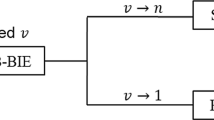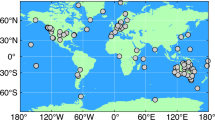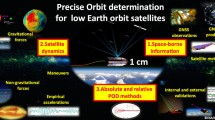Abstract
The probability of pseudo-range information being faulty will increase when there is increased noise in the receiver due to highly dynamic conditions. In this paper, an intelligent fault-tolerant federated Kalman filter (IFFKF) is presented to solve the problem of invalid position information as a result of the uncertainty in the category and quantity of failed satellites in a multiple configured satellite system. At the same time, a corresponding intelligent fault-tolerant system structure based on a cell-level fusion mode of operation was designed. Furthermore, a fault diagnosis strategy is proposed to deal with gradually or suddenly changing faults. By monitoring the residual and the residual rate, an observation quality gene is obtained using a fuzzy logic control system, and the local filter is adaptively adjusted on-line. Consequently, any filtering divergence arising from a gradually changing fault can, to a large extent, be prevented. The results show that the proposed algorithm and structure can achieve reliable positioning by fully utilizing new multiple satellites, monitoring and managing the gradual fault, as well as detecting and isolating any sudden fault in a synchronous manner. As such, the proposed algorithm has the potential to improve the reliability of a multiple satellite configured navigation system.
Similar content being viewed by others
References
Howell J. GNSS vulnerability and mitigation methods. In: Eleventh Air Navigation Conference, AN-Conf/11-WP/17, Montreal, Canada, 2003
Howell J. Concept of using combinations of in dependent satellite navigation systems and their augmentations. In: Eleventh Air Navigation Conference, AN -Conf/11-WP/18, Montreal, Canada, 2003
Mu R J, Han P X, Cui N G. Navigation device scheme and information processing method of RLV (in Chinese). Chin J Space Sci, 2009, 29: 117–123
Leppakoski H, Kuusniemi H, Takala J. RAIM and complementary Kalman filtering for GNSS reliability enhancement. In: IEEE/ION Position, Location, and Navigation Symposium, 2006. 948–956
Ren D. Failure detection of dynamic systems with the state chi-square test. J Guid Control Dyn, 1994, 17: 271–277
Song Z J, Jiang X W, Wang R X. Multi-observation fusion method based on fuzzy theory in spacecraft diagnosis system (in Chinese). J Harbin Inst Tech, 2003, 35: 778–780
Xia J H, Qin Y Y, Zhao C S. Application of fuzzy set theory to data fusion of the integrated navigation system (in Chinese). J Northwest Polytech Univ, 2008, 26: 636–639
Loebis D, Sutton R, Chudley J, et al. Adaptive tuning of a Kalman filter via fuzzy logic for an intelligent AUV navigation system. Control Eng Prac, 2004, 12: 1531–1539
Escamilla P J, Mort N. A hybrid Kalman filter fuzzy logic multisensor data fusion architecture with fault tolerant characteristics. In: Proceedings of the 2001 International Conference on Artificial Intelligence, Las Vegas, NV, USA, 2001. 361–367
Qin Y Y, Zhang H Y, Wang S H. Kalman Filter and Integrated Navigation Theory (in Chinese). Xi’an: Northwestern Polytechnical University Press, 1998
Mu R J, Rong S Y, Cui NG. Federated filter with strengthened FDIR capability for multiple sensor navigation system. In: IEEE Systems and Control in Aerospace and Astronautics, Harbin, China, 2006. 601–604
Zhang Q, Zhang X L, Li H W, et al. Satellite selection algorithm for combined satellite receivers (in Chinese). J Beijing Univ Aeronaut Astronaut, 2007, 33: 1424–1427
Zhang G L, Zeng J, Li T, et al. Fault-tolerance designing of federal Kalman filter for gradual changing fault (in Chinese). Acta Aeronaut Astronaut Sin, 2005, 26: 743–747
Duan Z H, Cai Z X, Yu J X. An adaptive particle filter for soft fault compensation of mobile robots. Sci China Ser F-Inf Sci, 2008, 51: 2033–2046
Wang G D, Zhang S K, Yang R L. An adaptive outlier algorithm based on Kalman filtering for Beidou satellite passive combination navigation (in Chinese). J Electr Inf Tech, 2008, 30: 1982–1985
Wei W, He Y. Fundamentals of Intelligent Control (in Chinese). Beijing: Tsinghua University Press, 2008
Gao F Q, Tan Z Z. The passive BD/INS integrated navigation fuzzy adaptive Algorithm (in Chinese). J Astronaut, 2007, 28: 1190–1194
Zhou D F, Xi Y G, Zhang Z J. A suboptimal multiple fading extended Kalman filter (in Chinese). Acta Automat Sin, 1991, 17: 689–695
Zhang Q C, Li Y, Liu L D. Research on information fusion method in satellite multi-sensor attitude determination systems (in Chinese). J Astronaut, 2005, 26: 314–320
Author information
Authors and Affiliations
Corresponding author
Rights and permissions
About this article
Cite this article
Wang, S., Zhao, X., Min, H. et al. Study on an intelligent fault-tolerant technique for multiple satellite configured navigation under highly dynamic conditions. Sci. China Inf. Sci. 54, 529–541 (2011). https://doi.org/10.1007/s11432-011-4192-0
Received:
Accepted:
Published:
Issue Date:
DOI: https://doi.org/10.1007/s11432-011-4192-0




